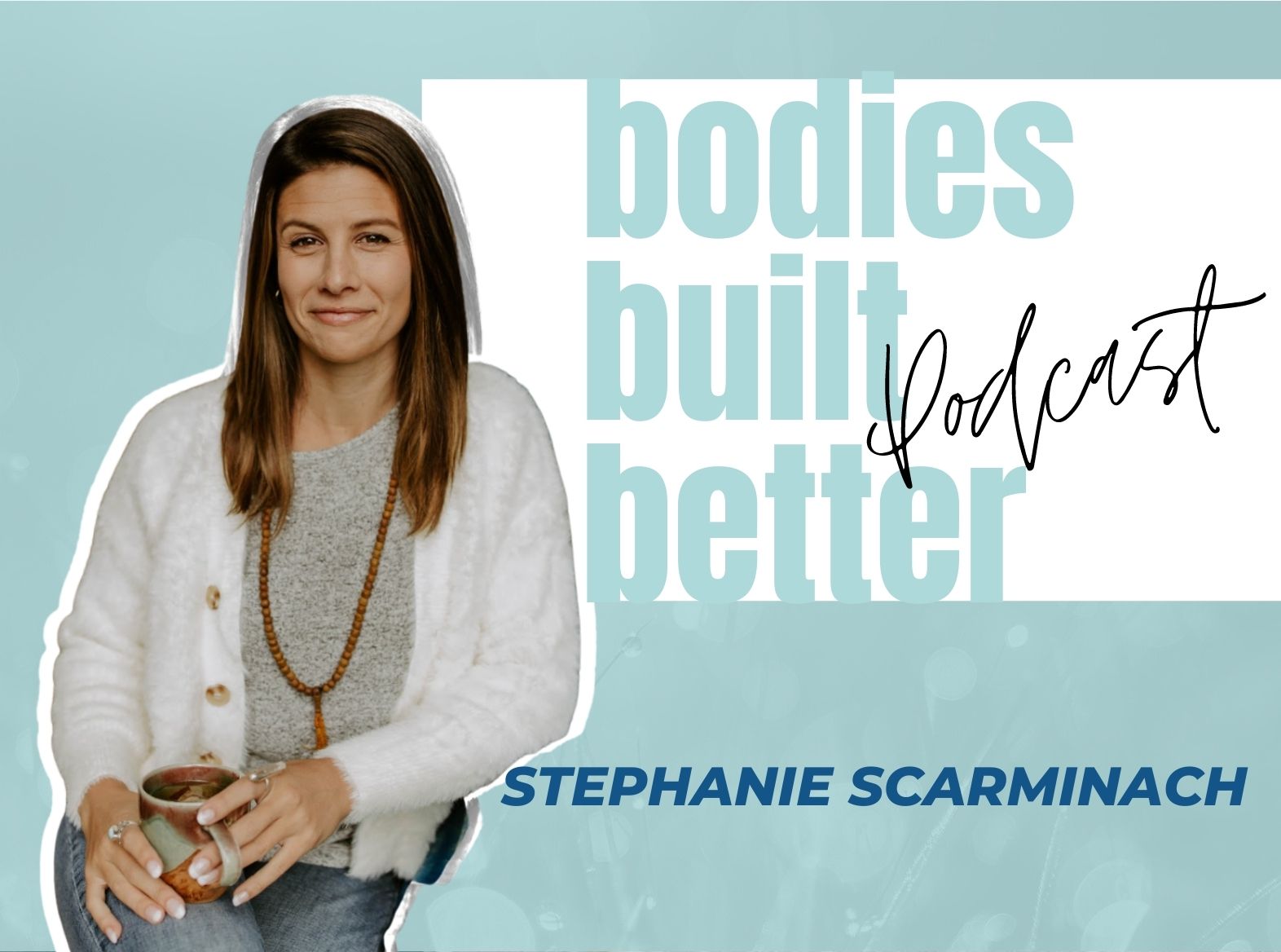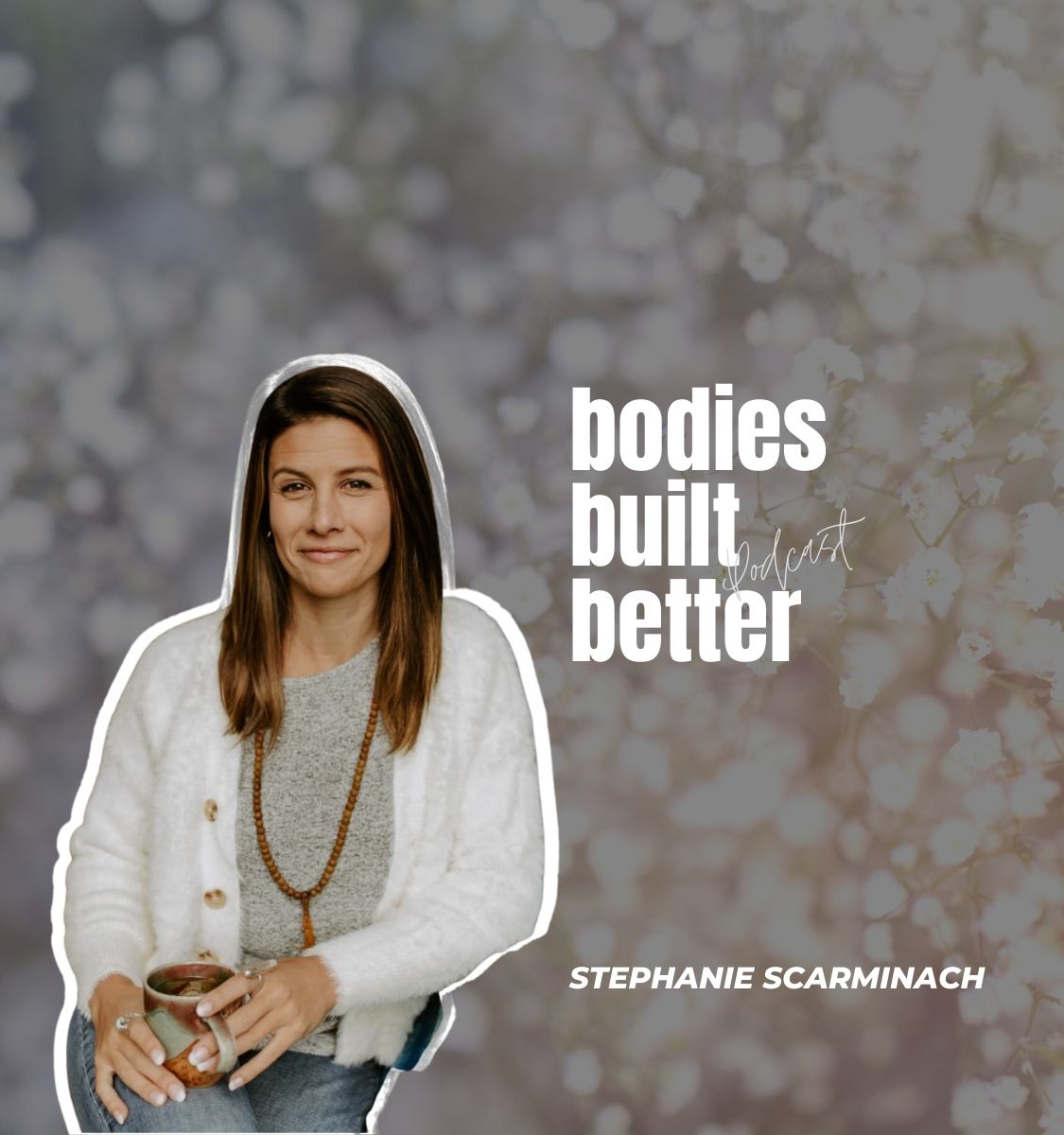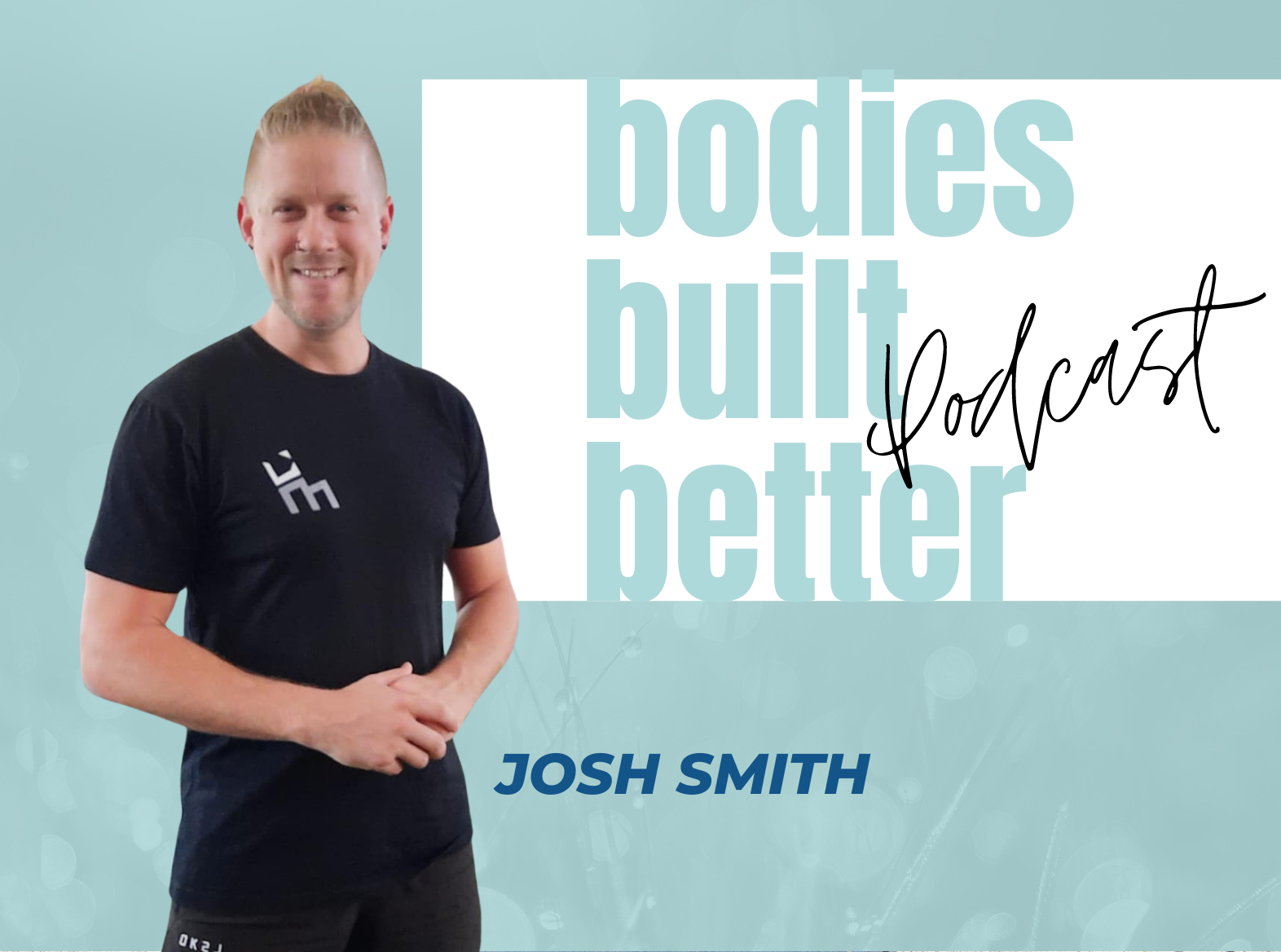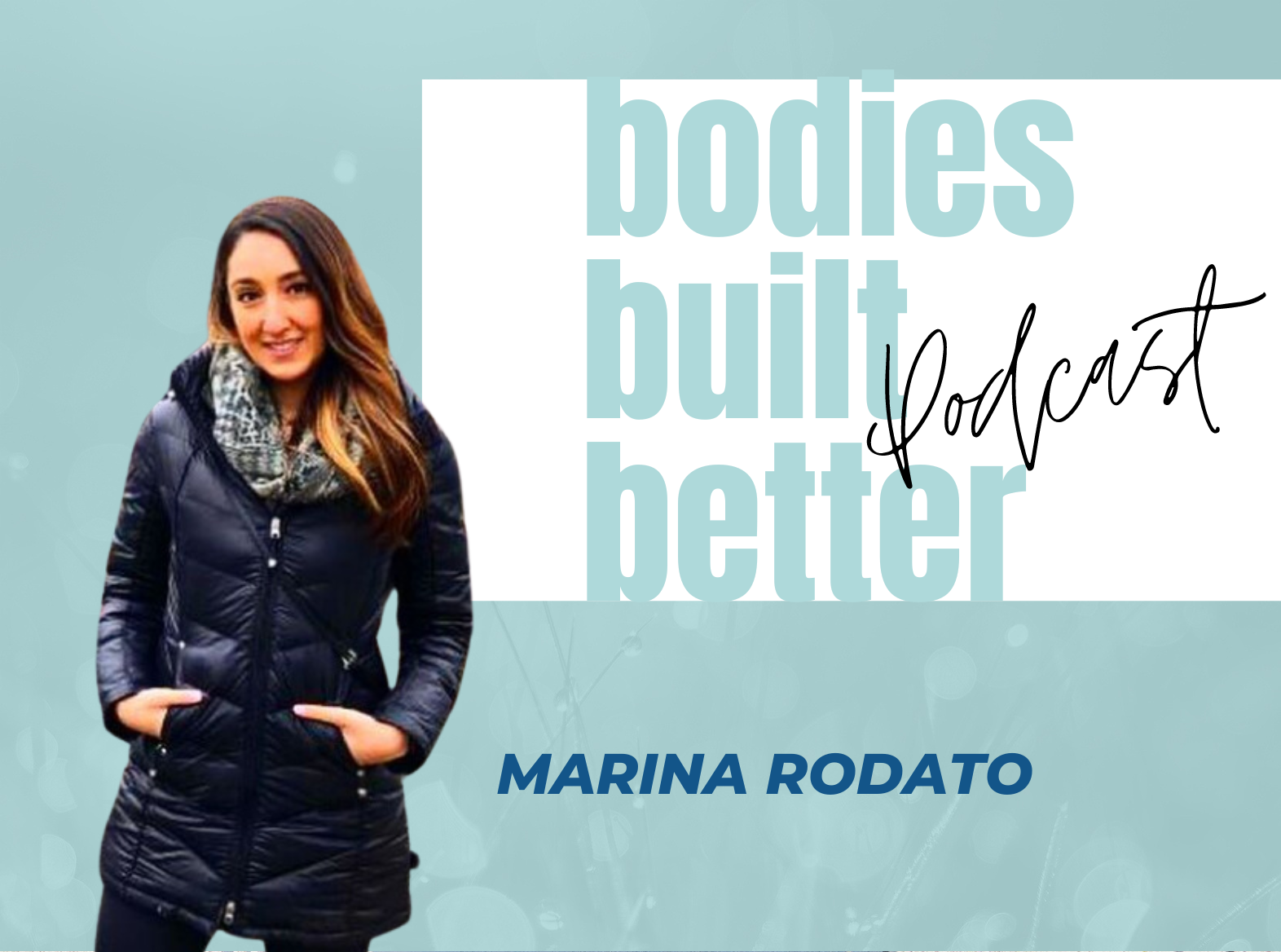Jackie 3:03
Stephanie, thank you so much for chatting with me today. Welcome to the Bodies Built Better podcast.
Stephanie Scarminach 3:08
Yay. Thank you so much for having me, Jackie. I’m so excited to get to share and just jump right into it.
Jackie 3:15
Yeah, me too. I’ve been a follower of yours for a little while now. And I feel like every time you post something, I learn something new about myself. It’s just that I love it so much. I love your work. And I know people are going to get so much out of this fun today. So to dive in, let’s hear about you and your journey in becoming a somatic intuitive healer.
Stephanie 3:42
Amazing. I think first, I’m just, I love hearing the feedback that it’s resonating for you, because that’s really why I’m in this field, doing what I do. And there’s this saying in the mental health professional world that we become healers out of an attempt to heal ourselves. And that my road to somatics was really because of my own struggle with my own dissociation and separateness from my body, engaging in unsafe activities or using substances or really dissociating out of an attempt to get away from the discomfort that I was experiencing from being in my body, in my feelings. And when I discovered somatics it was this lightbulb moment of, like, oh my god, that’s the thing I’m feeling I don’t feel in my body, it does feel overwhelming. And the more that I dove into it from different angles, both from the educational system, getting my master’s in this but also from the more non-traditional sense learning different modalities that are a little more holistic and a little more energy-based. All of those again, this was the light bulb, light bulb, light bulb, that resonated with my experience. And I found that I have shared this with other folks, people, like you’re going, “Oh, my gosh, that’s it.” That’s it right there.
Jackie 5:18
Exactly.
Stephanie 5:19
And I found that I found so much joy in not only getting to facilitate that experience, and use this tool to really help people heal and create healthier relationships with themselves, with their partners, et cetera. But also just, I found so much joy in talking about it in teaching and sharing this knowledge. Because I think, the more the more that we know, the more we dive into it, it sparks our curiosity, and if you know, anything that I can do, whether that’s personally or just the information of sharing, in a way, it’s it’s giving back to the Stephanie, who so early on did not have that. So each moment that I get that feedback, I feel so purposeful and fulfilled in that way of “Yeah, this is important.”
Jackie 6:17
Absolutely. It is. That’s beautiful. Well, can you tell us a bit about what is actually somatic intuitive healing, for those who don’t know?
Stephanie 6:27
Absolutely. So let’s break it down bit by bit. So the somatic piece, the word soma is Latin for body. And so, “somatic,” we’re looking at the sensory body based experiences that you’re having, and in particular, the way that that pairs with your emotional and mental health. So the phrase that I like to use often is your body is a subjective participant in your life, not objective. And when we look at it from that lens, the subjectivity, your body has been impacted, it hasn’t lived through these experiences with you, it has words to say about how it was affected in that life experience. So really, that’s the big piece of what we’re doing in the work that I offer–using the body language, experience, sensation, to learn and get curious about your emotional health, your mental health, the coping mechanisms, you’re using things like that. The intuitive piece is really more of the less traditional flavour that I’ve also practised with, which is, it is really a little harder to actually tangibly explain, because some of the intuition is what I’m feeling, is what I’m noticing, and I’m sensing, and it really is this extra flavour and skill that I’ve found to be able to attune to the person I’m working with or the group that I’m working with and and sometimes use my own sensations to help guide collectively us deeper in them, deeper in, and that can look like–I had a session recently where the client was trying to explain an experience, they were having a sensation and as I was sitting there, I felt nauseous. I felt like I could throw up if I fell into it all the way and I paused with the client. I said, “I’d have to check in. I’m feeling nauseous right now. I feel like I could throw up. Is that what that feeling is?” And their eyes widened and they’re like, “Oh, my god, that’s exact.” That’s what the feeling is, it feels like it and ill. But that’s very hard to tangibly define in some moments. And so that’s the intuitive part of what I’m offering is really, my the way I’m showing up in the room. And the healing is really our big umbrella is that that’s what we’re our big goal is, here, to deepen into the self love, the growth, the compassion, so that we can go back through our own experiences and give ourselves the things now that we didn’t get back.
Jackie 9:29
Oh, absolutely. There’s just so much in everything you just said. How do you hone that skill of that intuition and that intuitive piece for ourselves as well, that “listen to your gut”–you hear that a lot and I feel like that’s easier for people, for some than it is for others. How do you hone that skill?
Stephanie 10:01
Mm-hmm. Yeah, I think it’s a really good question. Because I think everyone has it. Yeah, it’s a natural part of us. And it really for me has been about the way I was taught to do this work was to do my work first, that before I was going to step in and facilitate for somebody else, the big question was, “okay, but if you’re gonna ask them to do it, can you ask yourself to do that, too?” And that is way scarier. And because of that, I am using this thing I’m asking clients to do, sense into your body, what are the sensations you’re noticing, and go deeper into that. I’m also doing that with them, in the moment. And that’s I think how we deepen our intuition, by going deeper and deeper into ourselves. That part of what you know, this platform and brand has developed into, has really been the acknowledgement that I’m actually out here doing this alongside you. I am by no means at the end of the road. But I’d like to share with you the tools that I’ve learned that have made walking this road actually a little bit smoother, not that there aren’t still bumps, not that the mountains don’t…in their way. But when I do see that mountain, there is a sense of, “I have my own back.” I do feel like I’m with me, pretty often, even in experiences of anger or sadness, or shame or depression, like all of those variations. So often, our first gut response is “get it away from me.”
Jackie 11:42
Totally.
Stephanie 11:44
Which makes so much sense. Those are hard, uncomfortable feelings. And that’s not to say that that’s not my first response as well. But rather, it’s a flag on the plate. It’s an invitation to say, “Huh, why? Why do I have such a big ‘get it away from me’ response reaction?” And to go towards that, actually, to go towards our shadow to go towards ourselves in that moment?
Jackie 12:12
Oh, yeah. That’s scary.
Stephanie 12:15
Absolutely, it absolutely is. But that as we do that, what we’re telling our body we tell our nervous system is I will choose to be with you, even if it’s scary, even if it’s hard […] And I think that’s what really deepens our ability to trust our intuition, that this attuning that I’m doing in sessions isn’t some wild, radical skill, but actually a skill that everyone has the potential to do as you deepen into yourself. And I see the growth in my own ability in that way from when I started doing this work to today, and hope to continue to see it grow as well.
Jackie 12:55
Yeah, absolutely. And that’s so powerful, you know, what you said about, with your clients and going through that journey with them? Because it’s so scary to even contemplate that, you know, on your own, and then to have someone with you, I mean, that gives you, I guess, that strength and confidence to dive into the places that you certainly don’t want to be going.
Stephanie 13:24
Absolutely. The image that often comes to mind as I’m doing that work really is, there’s this story of the dark night of the soul, right? We walk into the dark forest of our experience, and that doing that by ourselves is horrifying, because it’s dark and there are sounds in the forest and I can’t see where I’m going. And what I’m saying in my work is I am willing to walk with you into that forest. I actually can bring my light with me. And as we go, maybe my light can help you find your matches. It can help you find where your light is. And that together, we can learn this skill, we can use this tool so that you don’t have to walk it alone.
Where to Find Stephanie:
Website: www.stephaniesomatics.com
Instagram: @stephaniesomatics


